Beginner mountain bike gear: Which kit to invest in when you're getting into MTB
If you're new to the sport, here's a checklist of all the beginner mountain bike gear you need to stay safe and have fun
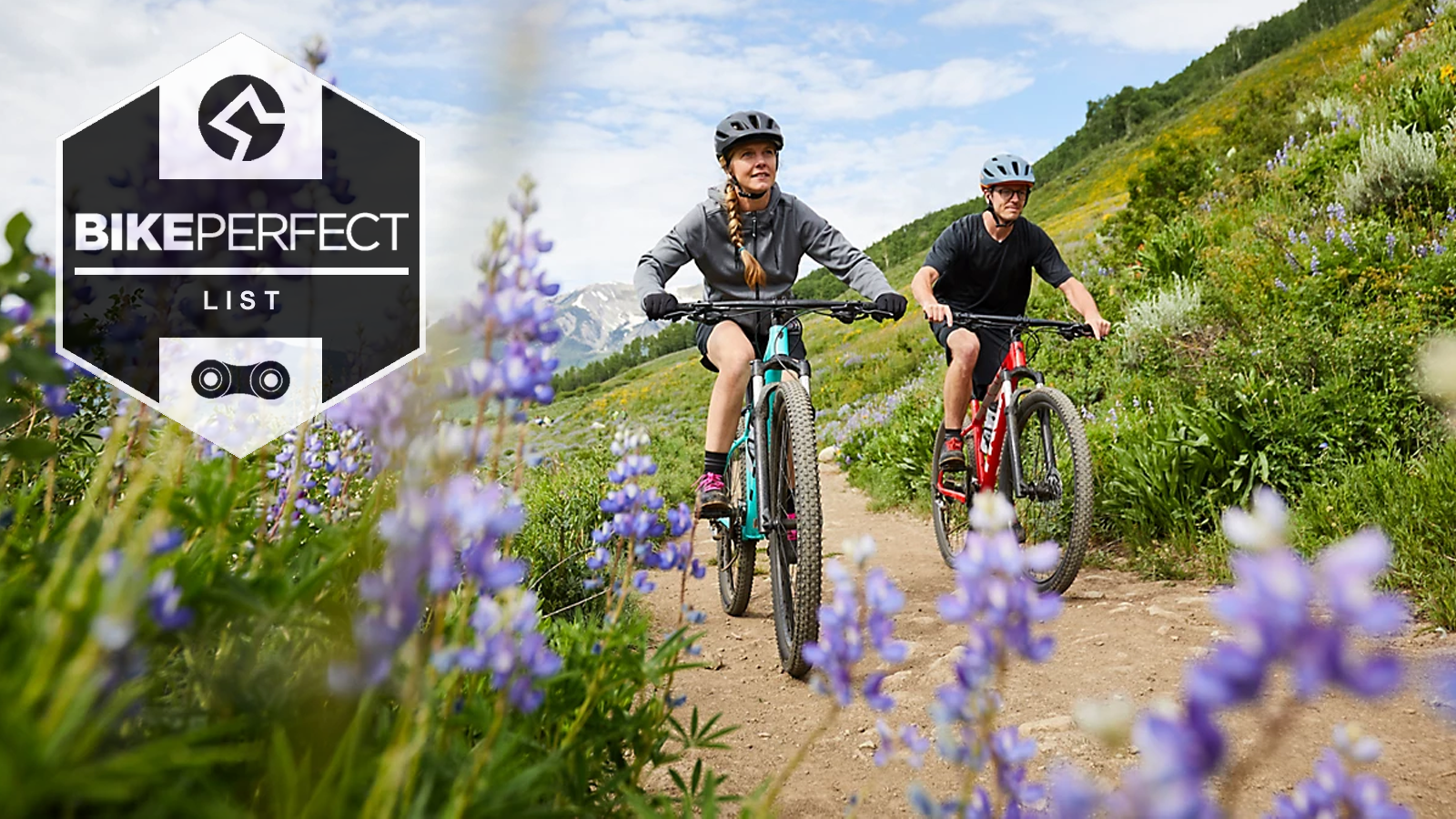
As a beginner mountain biker, you might feel the pressure to spend all your hard-earned cash on every piece of MTB kit you see, which can be off-putting to say the least. The good news is, you don't actually need a huge amount of kit to have a lot of fun on a mountain bike.
While we like flashy gear as much as the next rider, we recognize that it's the right inexpensive basics that will see you through months of fun at trail centers or out in the wild, so start by concentrating on that.
In this list, we'll tell you the bare essentials you need for a fun day out on the trails, as well as the 'nice to have' gear that you can always invest in later when you really take to the sport.
Not only is this essentially a kit checklist for any beginner mountain biker to consult, but we're also including links to our many buyer's guides that will prove to be invaluable as you delve deeper into the wonderful world of mountain biking.
The bare essentials
Why trust BikePerfect
You can start with almost nothing special, just a helmet, and a mountain bike that goes and stops. Don’t let kit be your reason for staying home.
Mountain bike
We’ll assume you’ve got the bike already, but if not, check Colin’s excellent article here:
- Best mountain bikes for beginners: bikes for new mountain bikers
- Best entry-level women's mountain bike: brilliant rides for every budget
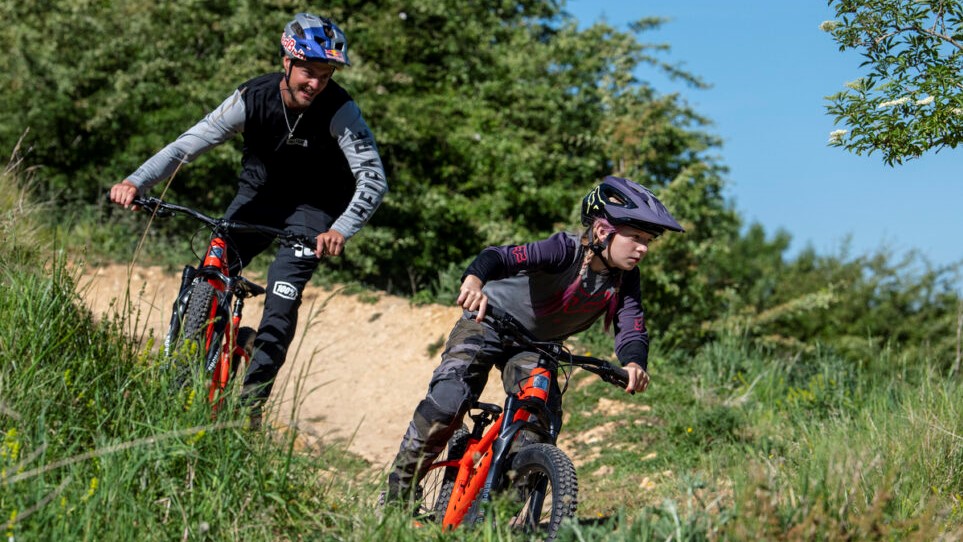
Helmet
Almost any big-brand cycling helmet will be fine to get you started, and a $40 lid can be just as protective as a $100 one as long as you do it up properly. More expensive helmets tend to be lighter, better ventilated, and okay, better looking, but all mountain-bike specific helmets have adequate protection around the back of the head, plus visors to reduce glare and protect you from branches.
- Best mountain bike helmet under $100: affordable MTB helmets for trail riding
Bottle
You’ll go further and feel happier if you're hydrated. A bottle and cage on your bike is the simplest approach, even if it can get a bit mud-splattered. You don’t have to get anything snazzy, but make sure it’s a snug fit, or else it’s "bye-bye bottle" once you hit the bumpy stuff.
- Best MTB bottle cages: the best bottle cages for bringing water on a MTB ride
Emergency repairs for the trail
Flats and mechanicals love to happen at the furthest point from the parking lot, so save yourself a long walk and pack a pump, a tube, and tire levers, and know how to use them. Throw in some hex keys as well, in case bolts work themselves loose.
If you can stretch to a mid-range multi-tool, you’ll be able to fix a broken chain too, and if you have tubeless tyres you’ll want a repair kit for that.
- Best bikepacking multi-tools: trusty tools for bikepacking adventures
- Best multi-tools for mountain biking: multi-functional tools for trailside repairs
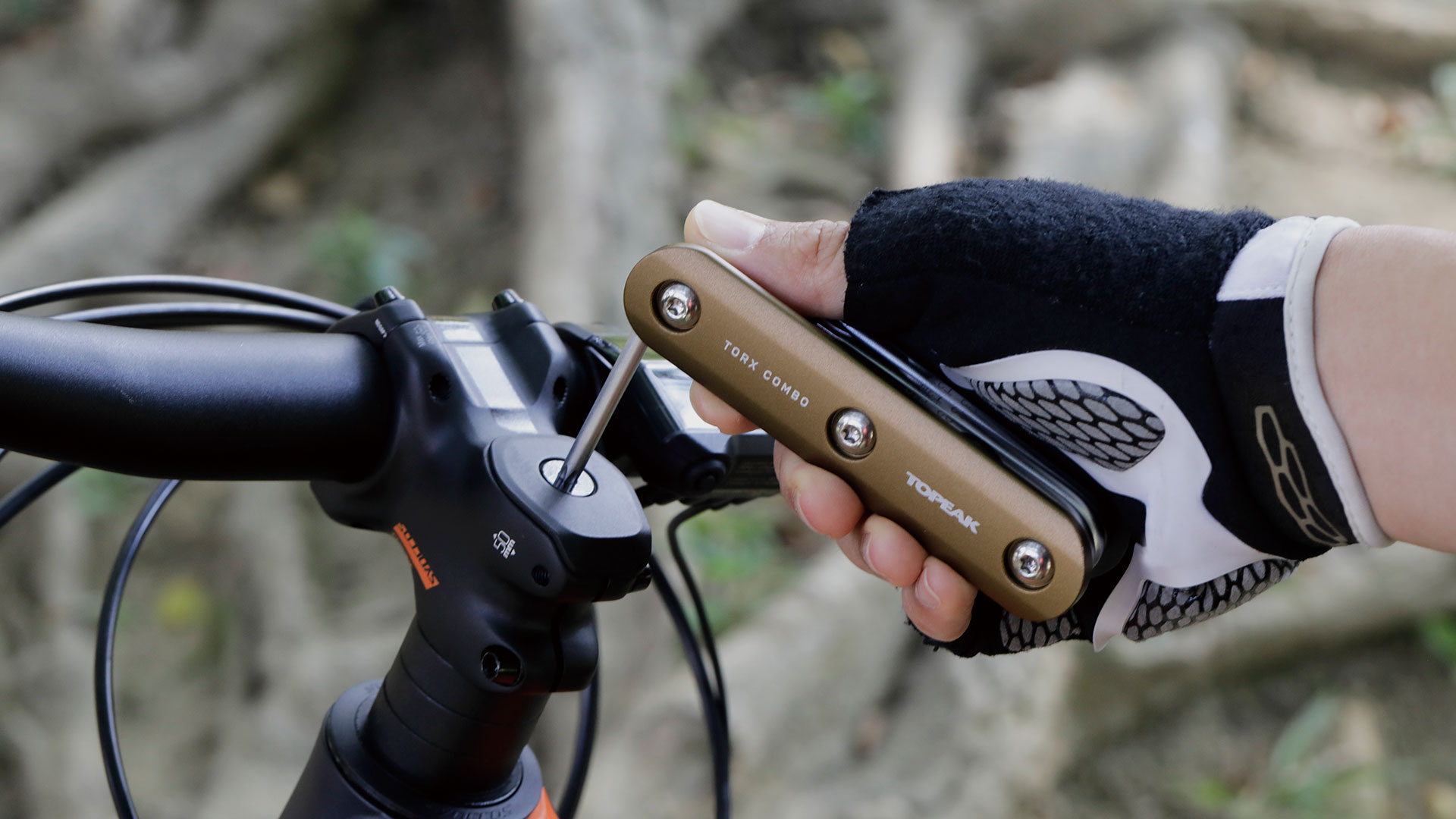
The basics
Shorts
Most riders would say padded shorts are an essential rather than a basic, but you can do shorter rides without them if you’re hardy.
The vital ingredient is the pad (or ‘chamois’, pronounced 'sham-ee'). It doesn’t need to be thick, but it does need to fit you well, otherwise it will give you trouble with seams or bunching, and you do tend to get what you pay for.
Cross-country racers tend to make like roadies and go full-Lycra with their shorts; most other mountain bikers tend to prefer padded Lycra underneath baggier shorts, since it looks more casual, it’s more protective if you fall, and loose shorts often have useful pockets and sometimes water resistance.
Some baggy mountain biking shorts come with padded liners, or you can wear a pair of regular padded shorts or bib shorts under them. Bib shorts (with shoulder straps) fit more snugly without digging into your waist, and spare you from draughty gaps around your middle; they’re just more awkward to pull on and off, especially when nature calls.
- Best mountain bike shorts: comfortable baggy shorts that blend protection with performance
- Best women’s mountain bike shorts: shred in style and comfort
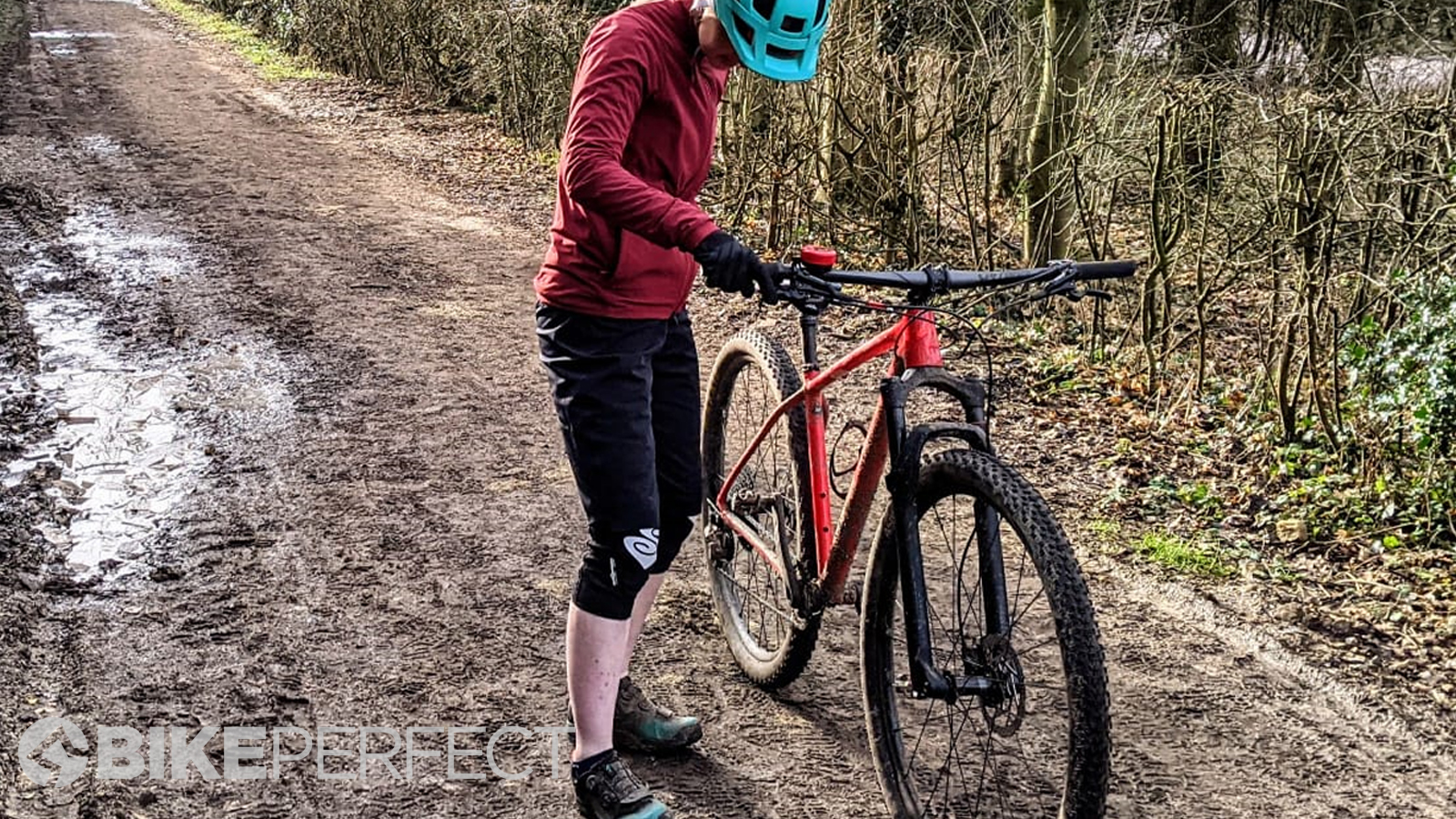
Any tech tops
Do yourself a huge favour and avoid cotton clothes when you ride. Sports kit made from nylon or polyester will wick sweat away in summer, and keep much warmer than cotton in the cold, even if it gets wet. Start by riding with what you’ve got - a summer tee and a thicker, more tightly woven thermal layer are a great start. Mountain bike-specific cuts tend to have longer backs and sleeves to keep you covered in a riding position, and may have room for elbow pads or body armour.
- Best mountain bike jerseys: breathable and stylish tops for riding
Gloves
You’ll be very glad of a half-decent pair of gloves. They’ll give you better grip and a bit of extra padding on the handlebars, and just as importantly, they’ll protect you from being whipped by branches along the trail or skinned when you crash. Mountain bikers tend to pick full-finger gloves rather than roadie mitts for better protection, and riders who like downhill and gnarlier terrain pick heavier-duty options. As well as regular MTB gloves, winter-specific models with help keep your hands warmer during the colder months.
- Best mountain bike gloves: full-finger gloves for every trail and situation
- Best winter gloves for mountain biking: warmer gloves for colder rides
Shoes and pedals
A grippy, responsive pair of MTB shoes is a joy to ride in, and you don’t have to break the bank to treat yourself to something that’s a world apart from squashy, slippery, unprotective trainers.
Your main choice is between flat pedals and clipless SPD pedals. You’ll be astonished at the grip between the pins on a pair of flat pedals and the sole of a decent flat pedal shoe, and flat pedals are the choice of many riders of all levels of experience.
Clipless shoes (which, confusingly, do clip you into the pedals - they earn their name with the lack of over-the-toe 'clip'), can be better for power transfer, but if you’re new to mountain biking and haven’t used them before, you’ll be much better off with flats.
- Best MTB flat pedal shoes: grippy shoes for all riding disciplines
- Best MTB flat pedals: the best MTB flat pedals for trail, enduro and downhill
- Best women’s mountain bike shoes: clipless and flat pedal shoes for female riders
- Best mountain bike shoes: how to choose the best MTB shoes for you
- Best mountain bike pedals: our pick of the best MTB pedals for XC to enduro
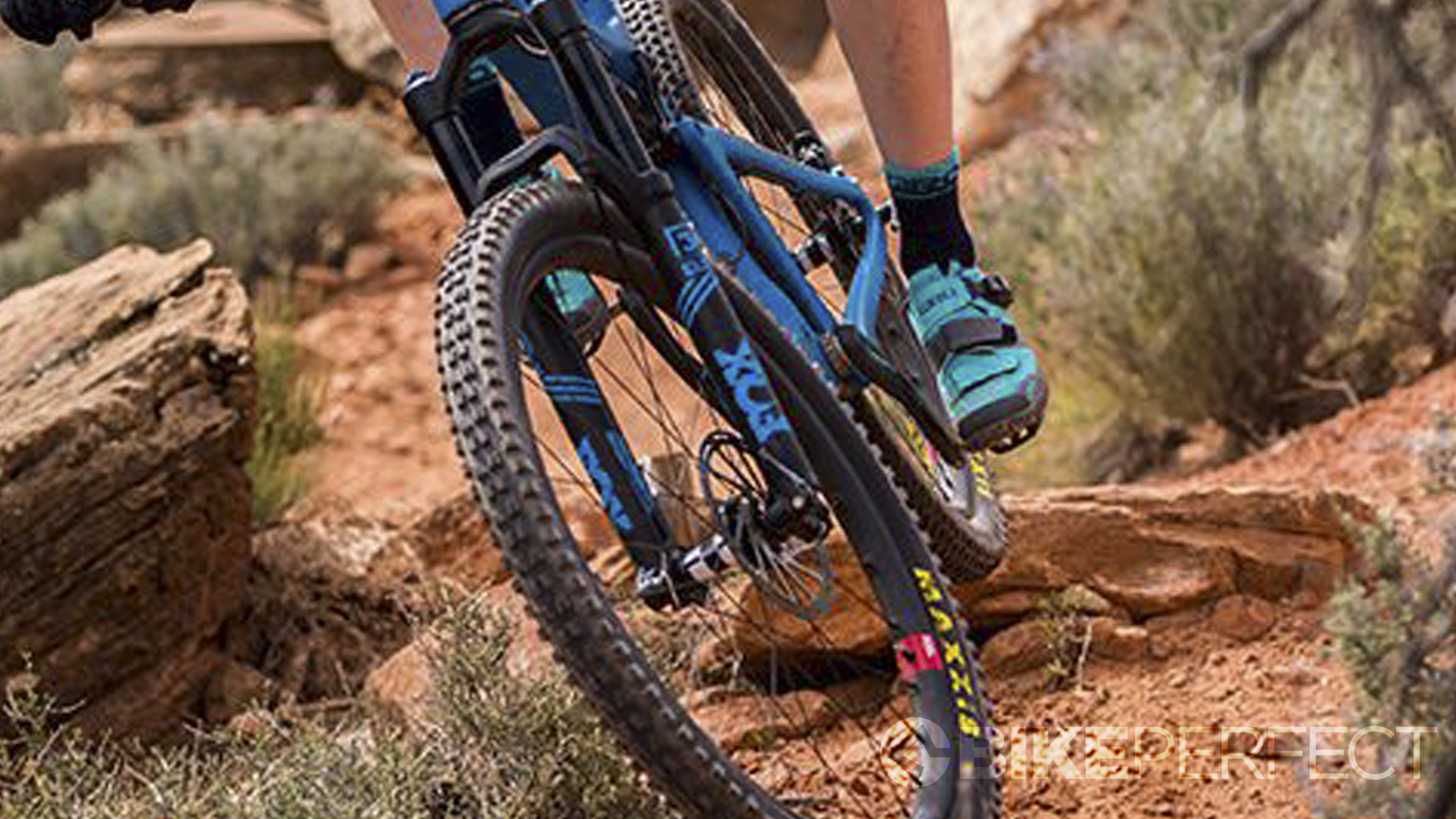
Something to carry stuff in
You’ve probably already got a small, light rucksack or an old-school fanny pack lying around at home, and while they may not be the last word in style, they’ll be just fine for your snacks, tools and waterproof jacket.
If you haven’t got one, or you’re feeling flush, treat yourself to an MTB-specific hip pack (some of which include space for bottles or hydration packs), or a mountain biking rucksack, which may be roomier and better for hydration tubes, if a little sweatier. You could also splash out on an under-saddle tool bag, which you can fit and forget about.
- Best MTB hip packs: ditch the bag and travel light on the trails
- Best mountain bike backpacks: carry everything you need for long days on the trails
- Best hydration packs: our pick of the best MTB hydration packs
Basic home tools
You’ve got the basic hex keys and puncture kit for out on the trail; at home, add a simple cleaning kit and some chain lube, and treat yourself to a track pump. Cleaning and lubricating your bike and drivetrain will make it last longer and run smoother (and make it easier to spot damage), and trust us, using a track pump is a thousand times' nicer than the hand-held alternatives.
If you like fettling your own bikes, add more tools once you start to need them.
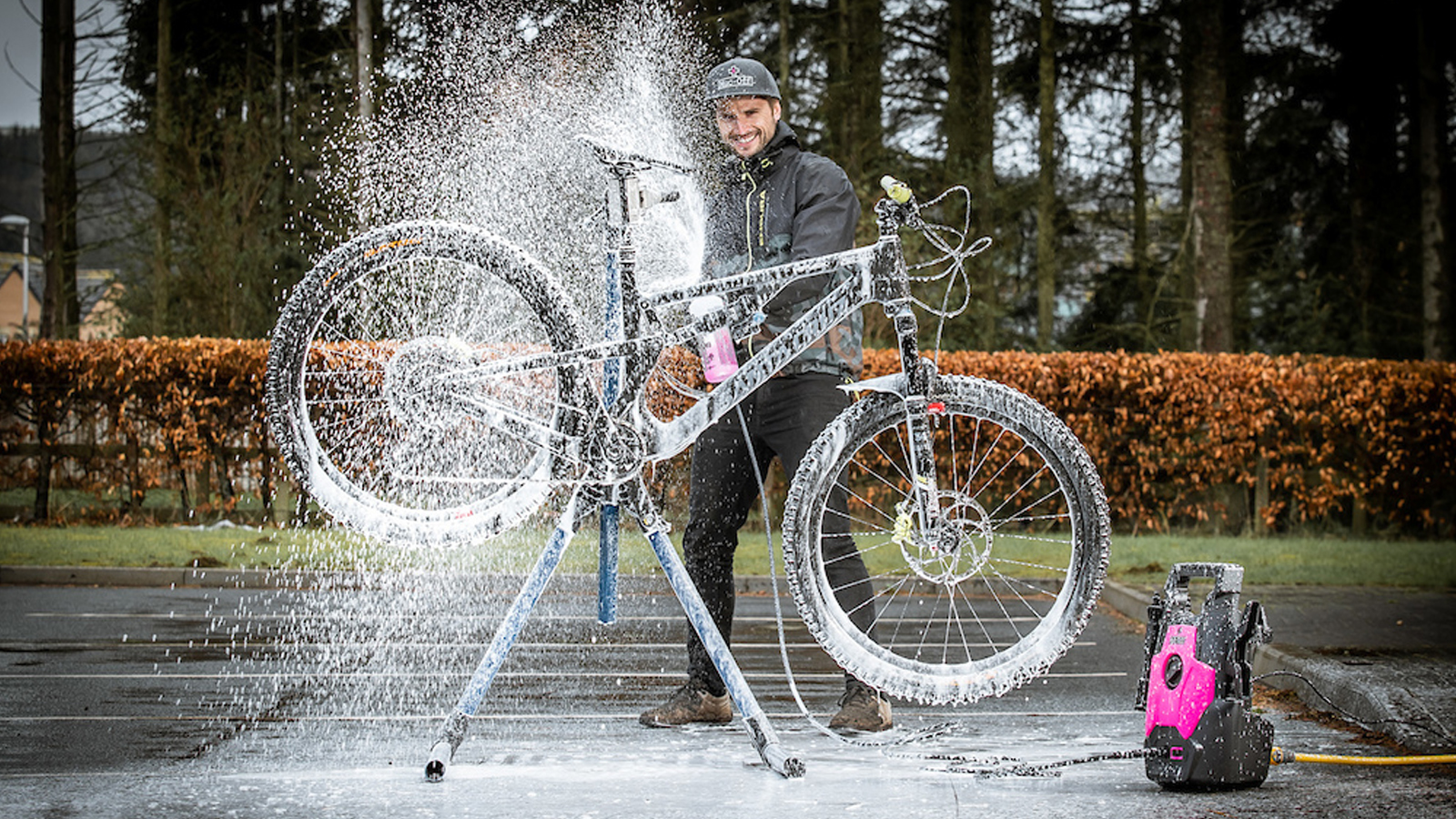
The 'nice to have' accessories
Glasses or goggles
Many riders swear by eyewear for reducing glare and protecting them from flying grime and overhanging branches.
- Best mountain bike sunglasses: the best MTB sunglasses to improve your trail vision
- Best mountain bike goggles: Keep your sight clear and eyes protected
Knee pads and other protection
Crash and your knees will quickly meet the ground, taking your skin with them. The latest kneepads are light, well ventilated and protective, and come highly recommended if you're pushing your limits.
- Best knee pads for mountain biking: all of the best MTB knee pads reviewed
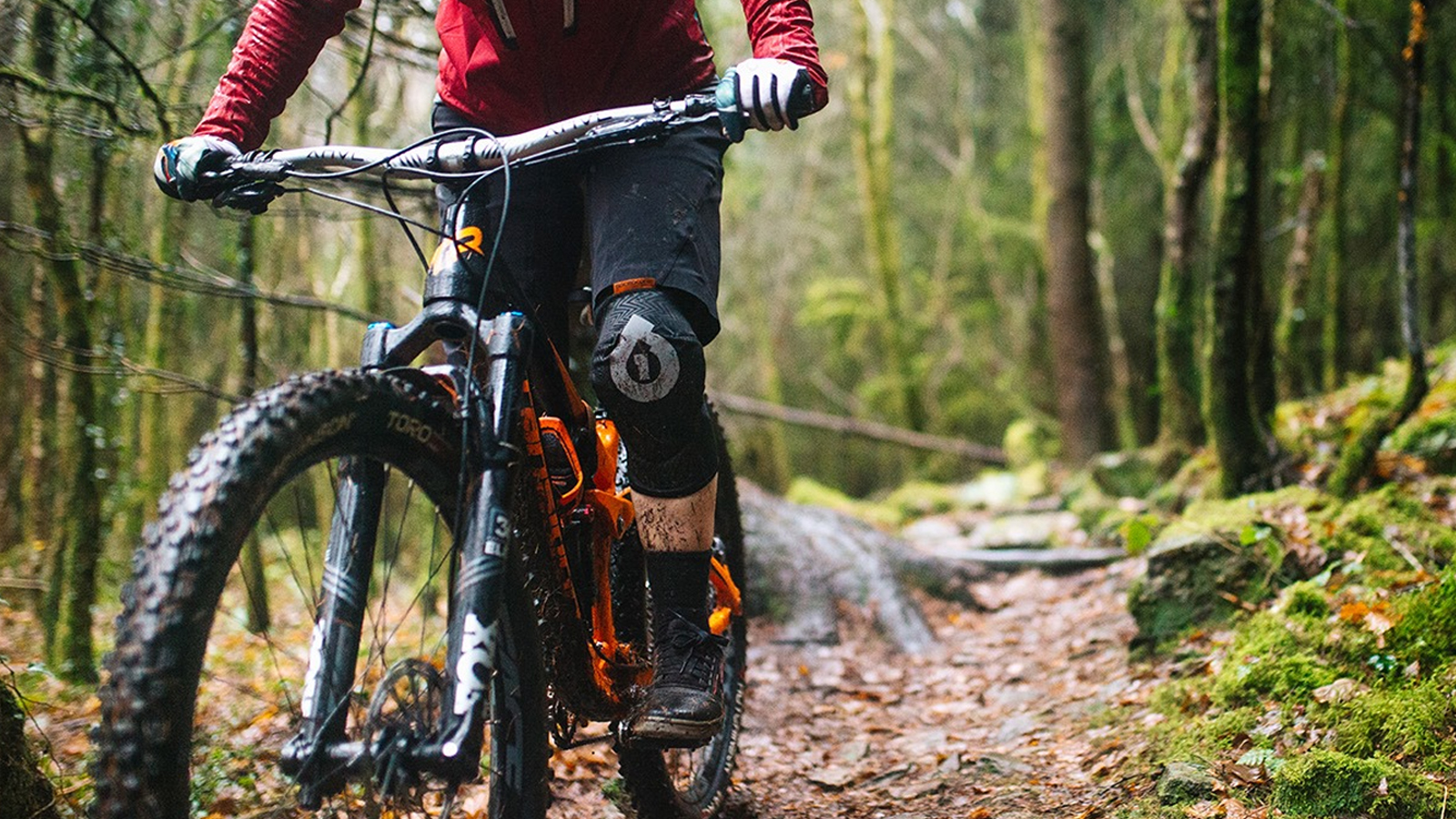
Proper cycling weatherproofs
A proper mountain biking jacket will be longer in the arms and tail, have enough room to move without being flappy, and be well vented, breathable and waterproof. The hood may even fit over your bike helmet. Good MTB trousers are similarly miraculous.
- Best MTB jackets: a roundup of the best mountain bike jackets available
- Best mountain bike pants: Full coverage MTB trousers for warmth and protection
- Best waterproof MTB trousers: a roundup of the best waterproof mountain bike trousers currently available
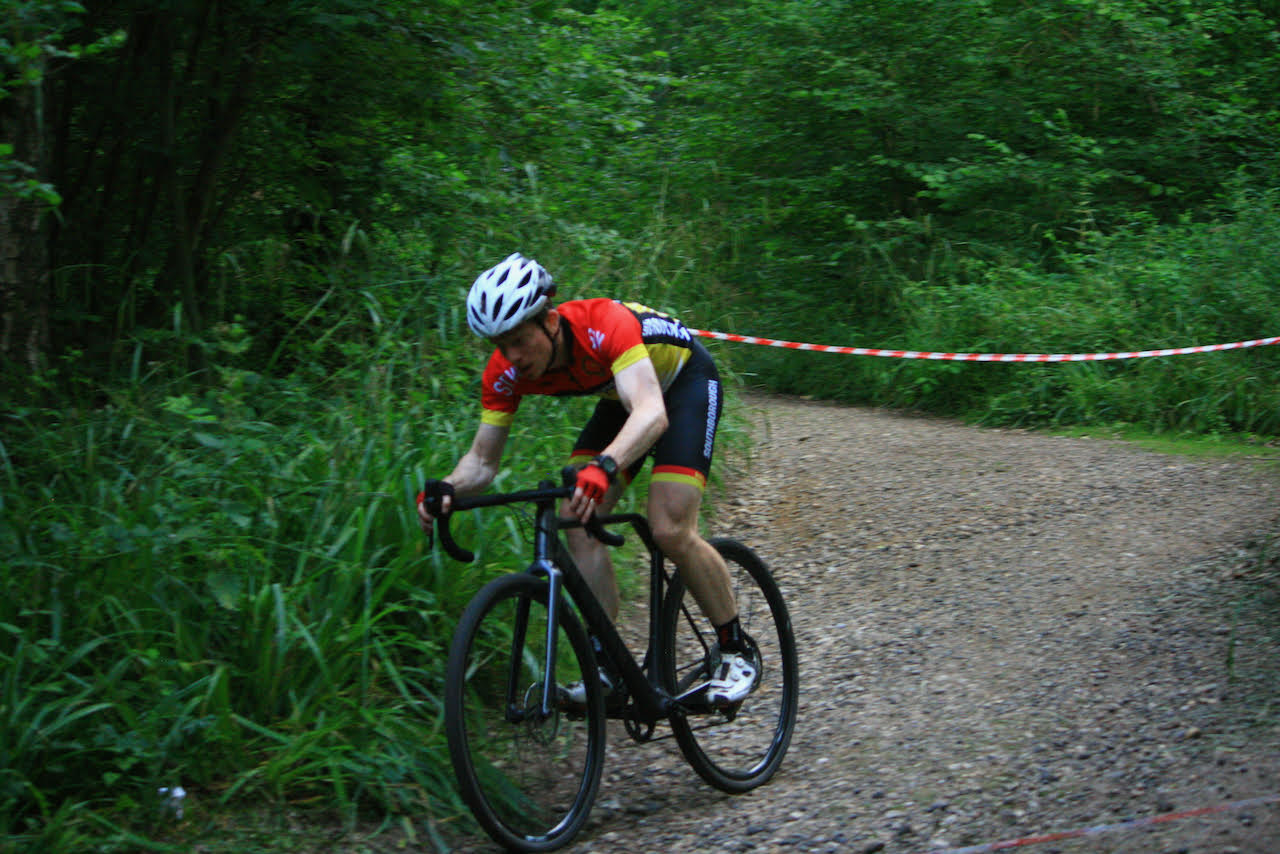
Sean has old school cycle touring in his blood, with a coast to coast USA ride and a number of month-long European tours in his very relaxed palmares. Also an enthusiastic midpack club cyclocross and XC racer, he loves his role as a junior cycle coach on the Kent/Sussex borders, and likes to squeeze in a one-day unsupported 100-miler on the South Downs Way at least once a year. Triathlon and adventure racing fit into his meandering cycling past, as does clattering around the Peak District on a rigid Stumpjumper back in the day.
Height: 173cm
Weight: 65kg
Rides: Specialized Chisel Comp; Canyon Inflite CF SLX; Canyon Aeroad; Roberts custom road bike
